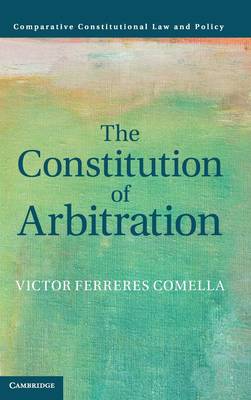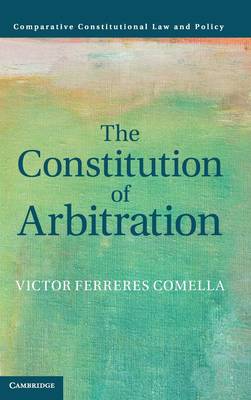
Door een staking bij bpost kan je online bestelling op dit moment iets langer onderweg zijn dan voorzien. Dringend iets nodig? Onze winkels ontvangen jou met open armen!
- Afhalen na 1 uur in een winkel met voorraad
- Gratis thuislevering in België vanaf € 30
- Ruim aanbod met 7 miljoen producten
Door een staking bij bpost kan je online bestelling op dit moment iets langer onderweg zijn dan voorzien. Dringend iets nodig? Onze winkels ontvangen jou met open armen!
- Afhalen na 1 uur in een winkel met voorraad
- Gratis thuislevering in België vanaf € 30
- Ruim aanbod met 7 miljoen producten
Zoeken
Omschrijving
This work is the first systematic discussion of arbitration from a constitutional perspective, covering the most important types of arbitration, including domestic arbitration in private law, international commercial arbitration, investment treaty arbitration, and state-to-state arbitration. Victor Ferreres Comella argues for the recognition of a constitutional right to arbitration in the private sphere and discusses the constraints that the state is entitled to place on this right. He also explores the conditions under which investment treaty arbitration is constitutionally legitimate, and highlights the shortcomings of international adjudication from a constitutional perspective. The rich landscape of arbitration is explained in clear language, avoiding unnecessary technical jargon. Using examples drawn from a wide variety of domains, Ferreres bridges the gap between constitutional and arbitral theory.
Specificaties
Betrokkenen
- Auteur(s):
- Uitgeverij:
Inhoud
- Aantal bladzijden:
- 280
- Taal:
- Engels
- Reeks:
Eigenschappen
- Productcode (EAN):
- 9781108842839
- Verschijningsdatum:
- 11/03/2021
- Uitvoering:
- Hardcover
- Formaat:
- Genaaid
- Afmetingen:
- 152 mm x 229 mm
- Gewicht:
- 485 g

Alleen bij Standaard Boekhandel
+ 374 punten op je klantenkaart van Standaard Boekhandel
Beoordelingen
We publiceren alleen reviews die voldoen aan de voorwaarden voor reviews. Bekijk onze voorwaarden voor reviews.











